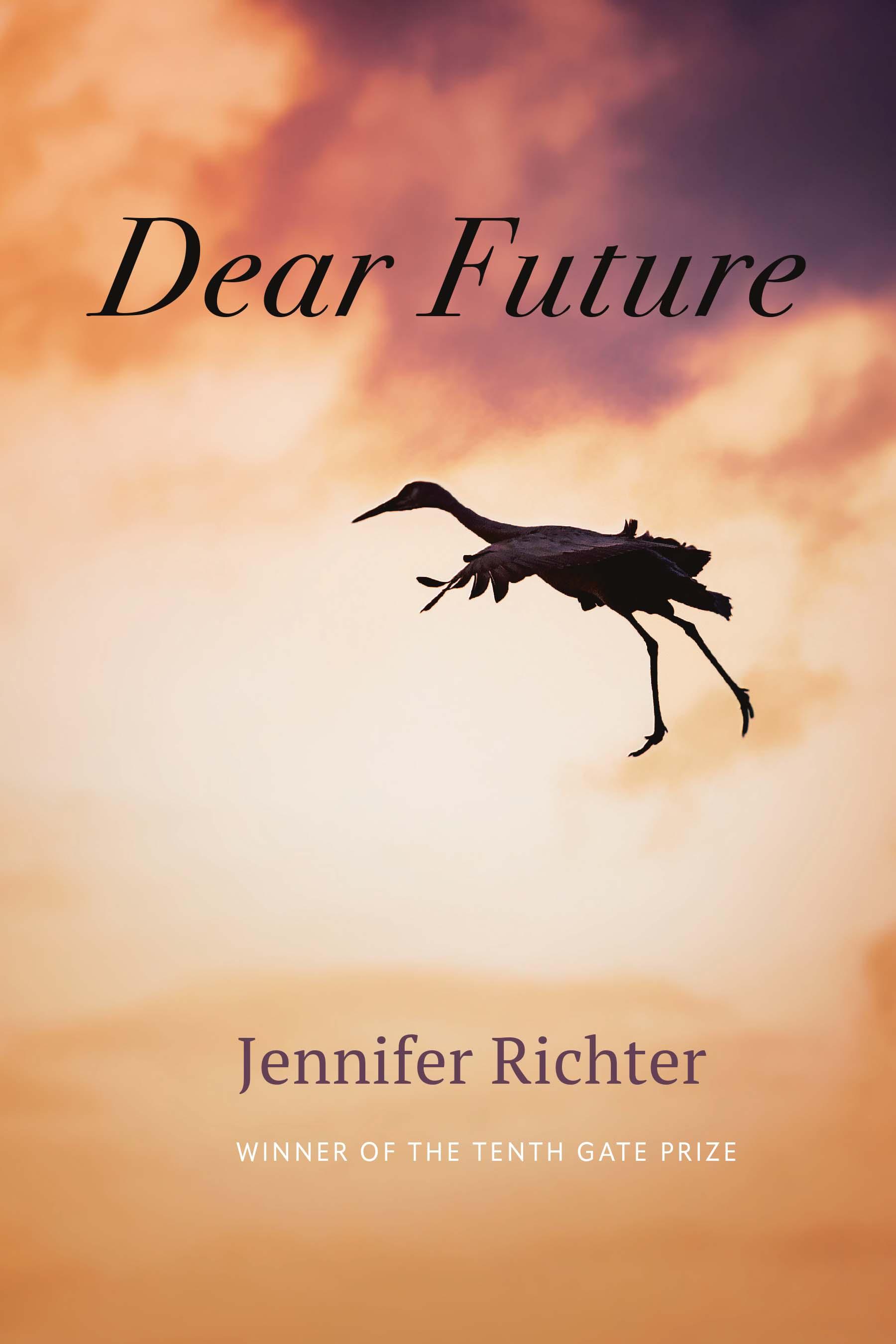Dear Future
published May 1, 2024
Winner of The Word Works’ Tenth Gate Prize for midcareer poets, chosen by Felicia Zamora

“Dear Future teems with the cadence of panic, with the anticipatory anxiety of mothering children who are growing toward departure, and departing, while navigating a global pandemic, a globe rattled by literal and figurative earthquakes. Charles Francis Richter—he of the Richter scale, and a poet—becomes a comrade in namesake Jennifer Richter’s own harrowing attempts to accompany her son as he navigates a serious, persistent depression. ‘[M]y son used to/sleep on me like a bunny on my belly,’ she writes, and those of us who know the particular pain of looking back on such tenderness, from a frightening present tense, clench our fists in empathy. ‘The Underworld Also Swallows Sons,’ she titles perhaps the finest poem in the collection, a sonnet, opening the book’s personal realm to the mythic, and with Wordsworth’s ‘The world is too much with us; late and soon,’ the literary. Her formal expressiveness is vast, offering up unpunctuated, breathless free verse, a cento, an erasure, ekphrasis, and the sonnet. In this vastly human, deeply honest collection, Richter revels in enjambments that jolt us like an earthquake, like love.”
—Diane Seuss, winner of the Pulitzer Prize in Poetry
“In Dear Future, we see the everyday quaked open to expose the seams of life’s uncertainty. Each poem becomes its own magnitude of scale—its own pulsating seismologic wave of language—that breaks loose for us to experience. These poems slide on a tightrope of moments compounded by imagery, ideation, and a slickness of language to portal us through space and time. With breath weaving ultimate control of over many of these deliciously unpunctuated poems, we feel a building toward the interrogation of language, motherhood, and the covenants of ‘natural disaster or lasting love.’”
—Felicia Zamora
“There’s so much I like about this book that I hardly know where to begin. The poet’s sense of music is fine, and beautifully honed to the demands of American English, and I admire the variations on form throughout, especially the way the poet never allows the sentence to be what drives the poems but always the line. That alone is a remarkable accomplishment. Also present throughout is an astute reckoning of what lies at the heart of what being human means in the face of a poetic consideration. Even this late in the human picture, she shows us that it is still possible to tell the truth about ourselves and to find beauty there. What endures for me is a quality of voice, that because of its natural beauty and its honesty, convinces the reader to enter the poems, where you will be safe.”
—Bruce Weigl
ISBN: 978-1944585693